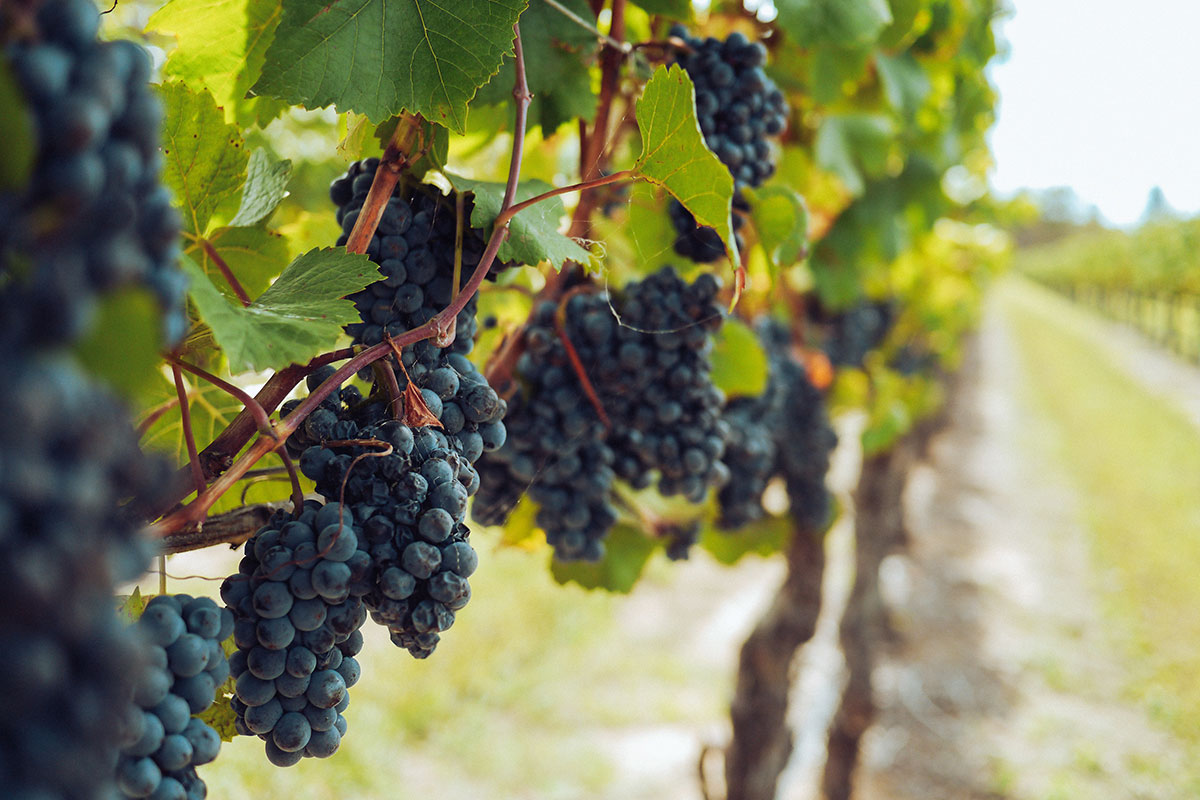

There is a lot of terminology that comes along with wine and winemaking, and some of it can be confusing if you’re not familiar with the process. If you’ve ever talked wine with a wine connoisseur or a wine lover, then you’ve probably heard them refer to a wine’s tannins… but what are tannins when it comes to wine?
What are Tannins?
Tannins are a naturally occurring compound within grapes, and other plant life, that create a bitterness when eaten.
In nature, tannins are present in a number of different plants and fruits ranging from wood and bark to cranberries, cacao, and grapes. Tannins are present to help prevent animals and wildlife from eating the fruit or seeds before they have fully ripened.
But how does that apply to wine?
Tannins are found naturally in the skin of the grapes used to make wine and help create that “dryness” that you find with certain wines. In addition to being found on the grapes themselves, the barrels used to age certain wines can also release tannins into the mixture as time goes on.
You’re more likely to find higher levels of tannins in red wines than white wines, because white wines tend to be a little sweeter than reds. Wines like cabernet sauvignon and syrah taste dryer because of the way the wine is produced, and the tannins present in the grape skins. The grapes used for these types of wines are usually processed with the skins still intact, which allows for more tannins in the final product.
Tannins act as an astringent which is what causes your mouth to feel “dry” when drinking a wine with a high tannin content. Tannins and sugar residue is what makes a wine either sweet or dry.
Tannins also act as a natural antioxidant, which can help preserve the wine for longer. Antioxidants are also good for our health, which is one of the reasons why doctors and scientists say that there are health benefits to having a glass of red wine every day.
Do Tannins Change the Flavor of Wine?
In general, yes, tannins can help to change the flavor of the wine because they cause your mouth to react differently when compared to a wine with no tannins.
Red wines with a high tannin level can leave your mouth feeling “dry”, but they can also help bring out flavors in the wine itself, as well as food. Red wine pairs very well with certain foods to help bring out flavors you may not have noticed otherwise.
In regards to whether tannins make the wine taste better, that’s a matter of opinion. Everyone has different tastes and experiences flavors differently. If you have tried red wine and you’re not a fan, then maybe a sweeter white wine or a less-dry red wine is more your style. There’s no right or wrong answer when it comes to wine tasting, it’s all a matter of personal opinion.
More seasoned wine drinkers will look for a wine that has bold, rich flavors, but one that also presents itself well on the palate. In some opinions, that is how you get the full experience out of a glass of wine.
Tannins in Hope Family Wines
At Hope Family Wines, Austin Hope has made it his life’s work to study tannins and how, when used properly, can create a richness on the palate from first sip to finish. The balance he has been able to find has allowed him to create one of the best luxury Cabernet Sauvignon wines in the world. Austin understands the benefit of tannins in wine and knows what needs to be done to ensure that they don’t overpower the other flavors he wants to shine through. And that’s why Austin Hope wines are regarded as some of the best around.
